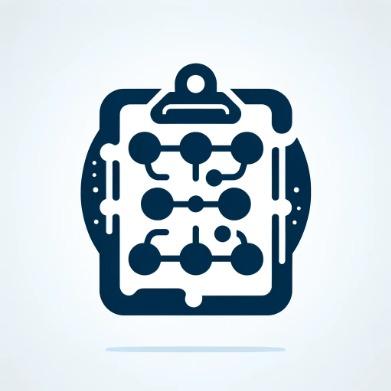UniBoard
Uniboard: Seamlessly Sync Your Clipboard Across Devices with Decentralized Precision
Created on 9th December 2023
•
UniBoard
Uniboard: Seamlessly Sync Your Clipboard Across Devices with Decentralized Precision
The problem UniBoard solves
Uniboard is designed to address a common challenge in the digital age: the seamless and secure synchronization of clipboard content across multiple devices.
Key Problems Solved by Uniboard:
1)Multi-Device Synchronization:
Use Case: Copy text, links, or small files on one device and seamlessly paste them on another, irrespective of the platform or location.
Benefit: Enhances productivity by eliminating the need to manually transfer clipboard content between devices.
2)Decentralized Security:
Use Case: Utilizes Waku's decentralized, peer-to-peer communication system, offering a more secure way to handle data than traditional centralized servers.
Benefit: Reduces the risk of data breaches and privacy invasions, ensuring clipboard data remains confidential.
3)Real-Time Clipboard Management:
Use Case: Manage clipboard history in real-time across all connected devices.
Benefit: Provides a streamlined workflow for users who frequently need to access previous clipboard entries.
4)Cross-Platform Compatibility:
Use Case: Works across various operating systems and devices, bridging the gap between different ecosystems.
Benefit: Facilitates a cohesive experience for users in diverse tech environments.
5)Ease of Use:
Use Case: Intuitive interface designed for effortless setup and usage.
Benefit: Makes advanced clipboard syncing accessible to both tech-savvy and casual users.
Challenges we ran into
Certainly, integrating Electron for the frontend of Uniboard posed significant challenges. Here's a brief overview of the issues we encountered and how they were resolved:
Problem: Ensuring that Electron works seamlessly across different operating systems was a major hurdle, as each platform has its unique quirks and requirements.
Problem: Electron apps can be resource-intensive, and initially, Uniboard was no exception, leading to higher than desired memory and CPU usage.
Problem: Integrating Waku's decentralized protocol within Electron's framework presented challenges, especially in managing node connections and ensuring stable data relay.
Overcoming These Challenges:
Extensive Research and Collaboration: Utilized community forums, Electron's extensive documentation, and collaboration with experienced developers in the field.
Iterative Testing and Debugging: Adopted an iterative approach to testing and debugging, which was crucial in identifying and fixing platform-specific issues.
Leveraging Advanced Tools: Employed advanced profiling and debugging tools to pinpoint performance bottlenecks and security loopholes.
Regular Code Reviews: Conducted regular code reviews to maintain code quality and ensure best practices in security and performance.
Tracks Applied (1)
Waku Track
waku
Technologies used
Cheer Project
Cheering for a project means supporting a project you like with as little as 0.0025 ETH. Right now, you can Cheer using ETH on Arbitrum, Optimism and Base.
